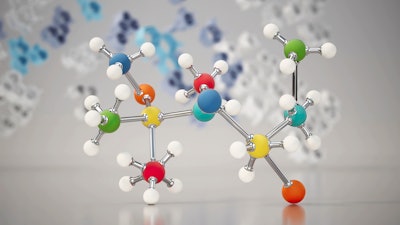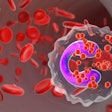
Researchers have identified multiple, co-stimulatory molecules that control the reactivation of the allergen-induced tissue-resident memory CD4 T (Trm) cells associated with asthma exacerbations. The development of future treatments that target those molecules could minimize asthma exacerbations by reducing the frequency and activity of Trm cells.
In the study, “ICOSL, OX40L and CD30L Control Persistence of Asthmatic CD4 Tissue-Resident Memory CD4 T Cells,” researchers examined the co-stimulatory molecules ICOSL, OX40L and CD30L and their impact on altering the longevity of lung-localizing memory T-cell populations associated with asthma. The study was published in The Journal of Allergy and Clinical Immunology.
Using single-cell RNA sequencing, researchers analyzed allergen-responding lung CD4 T cells from both human patients and a murine model of allergic asthma exacerbations. The results showed significant expression of ICOS, TNFRSF4 (OX40) and TNFSF8 (CD30L) in these cells.
Therapeutic interventions in the murine model demonstrated that inhibiting OX40L with CD30L partially suppressed the recall exacerbation response to allergens. However, neutralizing ICOSL with OX40L or CD30L effectively limited the accumulation of lung-localized memory effector T cells and eliminated all aspects of lung inflammation.
Researchers also noted the study found transient therapeutic inhibition of these molecules together resulted in a substantial reduction in the number and activity of Trm cells in the lungs over time. Even with repeated allergen challenges, the treated mice exhibited a state of hyporesponsiveness, preventing subsequent exacerbations of asthmatic lung tissue inflammation.
These findings suggest that combined inhibition of ICOSL with OX40L or CD30L could be a promising therapeutic approach for managing asthma. The research opens new avenues for developing treatments that target the persistence of inflammatory lung Trm cells, potentially improving the quality of life for asthma patients worldwide.























